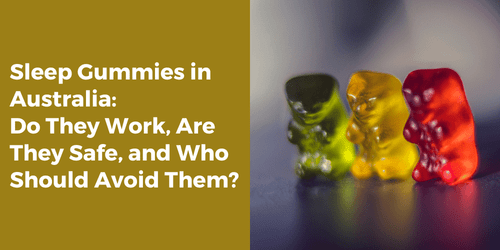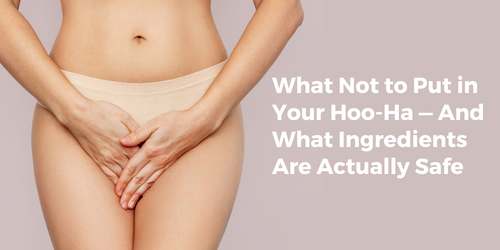Hand sanitiser has become a household staple in Australia. From shopping centres to schools and hospitals, bottles of sanitiser are always nearby. But beyond daily use, many people still wonder: How does it really work? Is it safe? What’s the best kind?
At MedCart Australia, your trusted online medical marketplace, we provide high-quality hand sanitisers and hand sanitiser sprays from leading brands. More importantly, we want you to understand how these products keep you safe—so you can shop smart and stay healthy.
- What Is Hand Sanitiser Used For?
Hand sanitiser is a liquid, gel, or spray designed to kill germs (bacteria and viruses) on your skin. It is especially useful:
- When soap and water aren’t available (public transport, shops, playgrounds).
- In healthcare settings where constant hand cleaning is necessary.
- To reduce the spread of contagious illnesses like colds, flu, and COVID-19.
Australian Government health guidance recommends alcohol-based sanitisers with 60–80% alcohol because they are effective in destroying most harmful germs.
- What’s the Best Hand Sanitiser?
The “best” sanitiser depends on how and where you’re using it.
- Alcohol-based hand sanitiser (60–80%): Recommended by health departments as the most effective.
- Hand sanitiser spray: Convenient for quick coverage or shared use.
- Gel sanitisers: Longer-lasting on hands and less likely to drip.
Avoid alcohol-free sanitisers, as there isn’t strong evidence they kill harmful germs.
? Tip: Look for products listed on the Australian Register of Therapeutic Goods (ARTG) to ensure safety and effectiveness.
- Is Sanitiser a Disinfectant or a Detergent?
- Disinfectant: Kills or inactivates germs.
- Detergent: Lifts away dirt, grease, and stains.
Hand sanitiser is a disinfectant, not a detergent. It kills germs but does not remove dirt or grease. That’s why soap and water are still recommended if your hands are visibly dirty.
- What Type of Hazard Is Hand Sanitiser?
Hand sanitiser is useful but has risks, especially when stored or handled incorrectly:
- Flammable: Alcohol-based sanitisers catch fire easily. Keep away from flames, heaters, and cigarettes.
- Eye Irritant: Can cause redness or burning if splashed into eyes.
- Toxic if Swallowed: Dangerous for children if ingested. Even small amounts may cause nausea or dizziness.
- Workplace Hazard: Businesses storing bulk sanitiser must follow Australian WHS guidelines, keep Safety Data Sheets (SDS), and label bottles correctly.
- Hand Sanitiser Spray: Why It’s Popular
Hand sanitiser spray offers advantages over gels and liquids:
- Even coverage: Mist spreads quickly across both hands.
- Portable: Spray bottles are lightweight and easy to carry.
- Dual use: Some sprays can also disinfect surfaces like trolley handles or door handles (if the label says so).
Always check product instructions—some sprays are for skin use only, while others are suitable for both skin and surfaces.
- How to Use Hand Sanitiser Properly
Using sanitiser incorrectly can reduce its effectiveness. Follow these steps:
- Apply enough product to cover both hands.
- Rub all areas—palms, back of hands, fingers, and nails.
- Rub for 20 seconds until your hands are dry.
- Do not wipe or rinse before drying, as this reduces effectiveness.
- Hand Sanitiser vs Handwashing
- Handwashing with soap and water: Best for removing dirt, grease, or chemicals.
- Hand sanitiser: Best for quick germ-killing when soap and water aren’t available.
Health authorities recommend a balance: wash when possible, sanitise when you can’t.
- Can Hand Sanitiser Expire?
Yes. Most hand sanitisers have a shelf life of 2–3 years. Over time, alcohol evaporates and the product becomes less effective. Always check expiry dates, especially for stored or bulk products.
- Child Safety and Poisoning Risks
Children are naturally curious and may try to drink sanitiser. This is dangerous because of the high alcohol content.
- Store out of reach of kids.
- Supervise use in schools or homes.
- In case of accidental swallowing, call the Poisons Information Centre (13 11 26) immediately.
- Environmental Impact: Is Hand Sanitiser Eco-Friendly?
Most alcohol-based sanitisers break down naturally in the environment. However:
- Plastic bottles contribute to waste.
- Refillable bottles and bulk buying reduce plastic use.
- Choose sanitisers that clearly label ingredients and avoid unnecessary chemicals.
- Regulations in Australia
In Australia, the Therapeutic Goods Administration (TGA) regulates alcohol-based hand sanitisers when they make therapeutic claims (e.g., “kills 99.9% of germs”). This ensures they are tested for safety and effectiveness.
Products that don’t make these claims (like some cosmetic sanitisers) may not need TGA approval, but still must meet Australian Consumer Law requirements.
- Everyday Tips for Safe Use
- Keep a bottle in your bag, car, or desk.
- Avoid open flames after applying sanitiser.
- Don’t spray directly on food or near babies.
- Buy from trusted suppliers like MedCart Australia to avoid poor-quality or unsafe products.
Vocabulary Explained
|
Word |
Meaning (Easy) |
|
Flammable |
Easily catches fire. |
|
Disinfectant |
Kills germs. |
|
Detergent |
Cleans dirt and grease. |
|
Hazard |
Something that could cause harm. |
|
SDS (Safety Data Sheet) |
Document explaining safe use and storage of chemicals. |
|
ARTG-listed |
Registered by the TGA in Australia for safety and quality. |
MedCart Australia: Your Trusted Marketplace
At MedCart Australia, we know health and hygiene are priorities. That’s why we stock a wide range of hand sanitisers and hand sanitiser sprays from trusted brands, making it easy for you to protect your family, workplace, or community.
? Shop our full collection here: MedCart Hand Sanitiser Shop
Final Thoughts
Hand sanitiser is an essential tool for reducing the spread of germs in everyday life. The best option is alcohol-based hand sanitiser (60–80%), whether in gel or spray form. While effective, remember the hazards: flammability, eye irritation, and child safety risks.
By using hand sanitiser correctly, storing it safely, and buying quality products, you can protect yourself and those around you.
Stay safe, shop smart, and trust MedCart Australia for all your medical and healthcare essentials.
References (Australia-Based)
- HealthyWA. Alcohol-based hand sanitiser: Safe use and storage. Government of WA Health.
- Safe Work Australia. Manufacture or supply of alcohol-based hand sanitisers. 2020.
- WorkSafe Victoria. Fire hazards when manufacturing or storing alcohol-based hand sanitiser.
- Better Health Channel (VicGov). Antibacterial cleaning products.
- NSW Food Authority. Guidelines for sanitiser use in food settings.
- Therapeutic Goods Administration (TGA). Hand sanitiser regulation in Australia.




